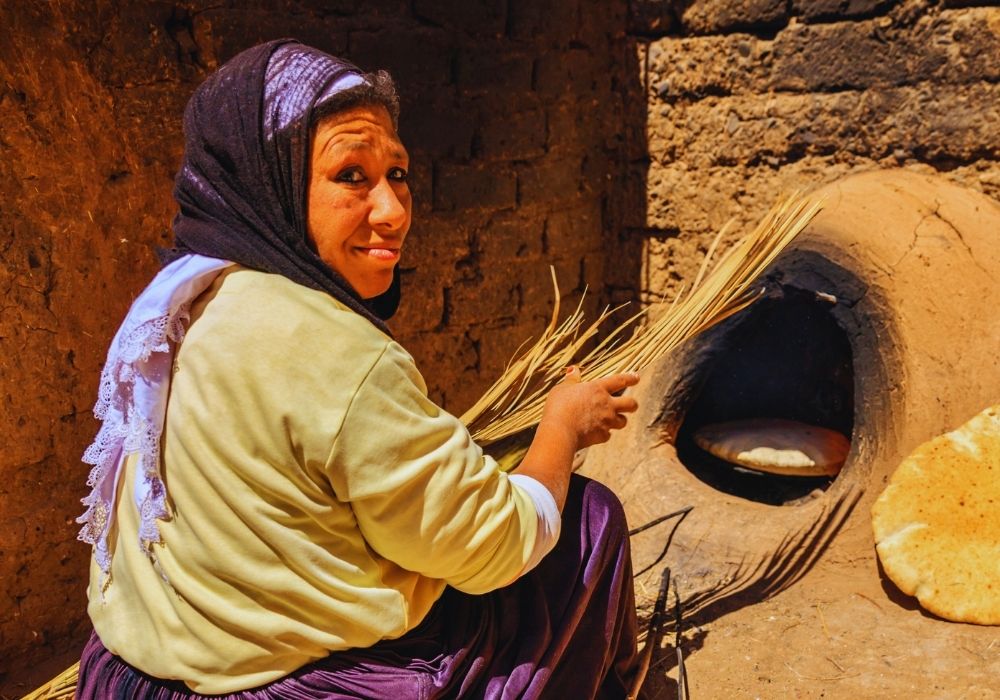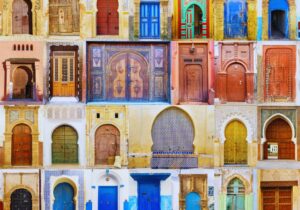Embark on a cultural odyssey with our blog post, ‘Navigating Morocco: A Cultural Odyssey – Etiquettes Unveiled.’ As we delve into the heart of Morocco’s rich heritage, this guide promises to unravel the intricacies of local etiquettes, offering you a profound understanding of the cultural tapestry that makes Morocco a unique and vibrant destination. From traditional greetings to dining customs, join us on this enlightening journey where respect and tradition converge in every interaction.
Moroccans are extremely hospitable and very tolerant. Though most people are religious, they are generally easy-going, and most young Moroccan women don’t wear a veil, though they may well wear a headscarf. Nonetheless, you should try not to affront people’s religious beliefs, especially those of older, more conservative people, by, for example, wearing skimpy clothes, kissing and cuddling in public, or eating or smoking in the street during Ramadan.
Culture in Morocco: Unveiling Etiquette and Traditions
Clothing code
Clothes are particularly important: many Moroccans, especially in rural areas, may be offended by clothes that do not fully cover parts of the body considered “private”, including both legs and shoulders, especially for women. It is true that in cities Moroccan women wear short-sleeved tops and knee-length skirts (and may suffer more harassment as a result), and men may wear sleeveless T-shirts and above-the-knee shorts. However, the strict Muslim idea of “modest dress” (such as would be accepted in a mosque, for example) requires women to be covered from wrist to ankle, and men from over the shoulder to below the knee. In rural areas at least, it is a good idea to follow these codes, and definitely a bad idea for women to wear shorts or skirts above the knee, or for members of either sex to wear sleeveless T-shirts or very short shorts. The best guide is to note how Moroccans dress locally.
Invited for a local family?
When invited to a home, you normally take your shoes off before entering the reception rooms – follow your host’s lead. It is customary to take a gift: sweet pastries or yogurt and chocolate are always acceptable to cheer up the host’s little children. Don’t be surprised if you don’t see women around the house – at least the adults and elderly ones in remote villages – since it’s a tradition that they don’t show up to unfamiliar guests at home. Still, women travelers invited to a local home may meet the host women and exchange jokes with them. Thus, we recommend consulting your guide in case of inconveniences when visiting the local home.
Women in Morocco
There is no doubt that, for women especially, traveling in Morocco is a very different experience from traveling in a Western country. One of the reasons for this is that the separate roles of sexes are much more defined than they are in the West and sexual mores much stricter. In villages and small towns, and even in the Medinas of large cities, some older women still wear the veil, and respectable women don’t smoke or drink in bars, with some people still taking the attitude that any woman who does cannot therefore be respectable.
It should be said, however, that such ideas are fast disappearing among the urban youth, and you will nowadays find Moroccan women drinking in the more sophisticated bars, and even more often in cafés, formerly in all-male preserves. In the Villes Nouvelles of large cities, and especially in the Casa-Rabat-El jadida area, and in Marrakech, you’ll also see young people of both sexes hanging out together, though you can be sure that opportunities for premarital sex are kept to a minimum. Even in traditional, Moroccan societies, mountain and Sahara Berber women, who do most of the hard work, play a much more open role in society, and rarely use a veil.
Sexual harassment
Different women seem to have vastly different experiences of sexual harassment in Morocco. Some travelers find it persistent and bothersome, while others have little or no trouble with it at all. Many women compare Morocco favorably with Spain and other parts of southern Europe, but there is no doubt that, in general; harassment of tourists here is more persistent than it is in northern Europe or the English-speaking world.
The obvious strategies for getting rid of unwanted attention are the same ones that you would use at home: appear confident and assured and you will avoid a lot of trouble. Making it clear that you have the same standards as your Moroccan counterparts will usually deter all but the most insistent of men.
How you dress is another thing that may reduce harassment. Wearing “modest” clothes (long sleeves, long skirts, and baggy rather than tight clothes) will give an expression of respectability. Wearing a headscarf to cover your hair your hair and ears will give this impression even more. Other strategies to steer clear of trouble include avoiding eye contact, mentioning a husband who is nearby, and if traveling with a boyfriend or just your husband.
You should also avoid physical contact with Moroccan men, even in a manner that would not be considered sexual at home, since it could easily be misunderstood. If a Moroccan man touches you (a foreign female traveler), on the other hand, he has definitely crossed the line, and you should not be afraid to yell out at him, or if necessary call for help.



Hi, this is a comment.
To get started with moderating, editing, and deleting comments, please visit the Comments screen in the dashboard.
Commenter avatars come from Gravatar.